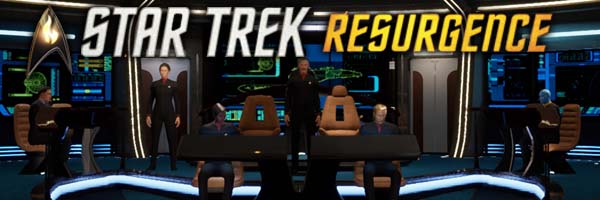
Dramatic Labs is a relatively small, independent studio releasing their first game. As such, I want to give them some slack when it comes to the technical aspects of the game. That being said, the technical problems here aren't just superficial things like a choppy framerate or texture pop-in; they are things that have a big impact on the story, and which are impossible to ignore.
Even in the opening chapters (which I would expect to be the most polished part of the game), the dialogue frequently glitches out. It will replay the first line of a character's dialogue, and then skip the last line of their dialogue. At first, this was only a minor inconvenience because I was able to read the subtitles. But a few minutes later, the subtitles started disappearing as well, making it impossible for me to know for sure what was supposed to have been said. In a game that is supposed to be one long, interactive cutscene that requires the player to respond to dialogue, these problems with the playback of dialogue and subtitles is a big deal.
Furthermore, I suffered from a hard crash to the PS4's dashboard, and another soft lock when the game got stuck in tricorder mode and wouldn't accept any scan inputs. The tricorder soft lock happened at the same place in both of my playthroughs of the game, while trying to scan a miner's locker room for traces of DNA. If I walked to a certain corner of the kitchenette and pulled up the tricorder, the game wouldn't let me put the tricorder away or scan anything. In both cases, I had to exit to the game's main menu, reload the level, and then avoid that corner of the kitchenette in order to proceed.
Most of the game is responding to dialogue, so it's a big problem that some of the dialogue gets skipped.
These crashes and soft locks are particularly annoying because in both cases, they forced me to have to redo a large chunk of lengthy chapters of the game. And with no way to skip non-interactive sequences or dialogue, these replays really dragged. I don't necessarily mind having to sit through cutscenes and dialogue if I'm doing an alternate playthrough of the game, and hopefully seeing different scenes and experiencing different dialogue, but when I'm replaying the same section of a single playthrough and replicating the choices that I made verbatim, it's pretty annoying.
Also, this isn't really a "technical issue", per se, but the developers didn't bother to hide the PSN trophy information, and many of those trophies provide fairly explicit story spoilers. I also think they accidentally swapped the icons for a couple of pairs of trophies. Heck, even the save files (on PS4) aren't given useful labels. They all just say "Save Data". So if you wanted to backup and reload a save to find out what changes, you'll have to know the date and time of the relevant save because the filename won't help you.
Trophies spoil the story, and the save files all have the same name.
So let's get this out of the way right up front: if you want to play Star Trek Resurgence, you'll have to put up with a lot of technical problems and, let's call them "beginner's mistakes".
Playing with tricorders instead of phasers
But even though Dramatic Labs and co-developer Bruner House are not very experienced with creating games, they definitely do seem to know their Star Trek. If you can look past the glaring technical problems (most of which will hopefully be fixed with post-release patches down the line), Resurgence is a solid piece of Star Trek writing.
This "Telltale formula" is a very good fit for Star Trek, and I'm surprised that it's taken this long for someone to make a Star Trek game like this. Heck, I'm surprised that Telltale themselves never got the license to make a Star Trek game, since they seem to be huge nerds, and Trek seems like it would be right up their alley.
Tricorders might get more screen time than phasers.
A lot of Trek games fall into the trap of trying to adapt Trek into an action-heavy game genre. We've got examples like Elite Forces being a first-person shooter, Armada being a real-time strategy StarCraft clone, Invasion being a dogfighting Colony Wars clone, and so forth. These games usually prioritize phasers and photon torpedoes as the primary way that the player interacts with the play space. Resurgence, however, largely eschews phasers in exchange for pulling out a tricorder.
The Telltale formula (which is probably closest to old-school point-and-click adventures of LucasArts fame) allows the story and characters to take center-stage without having to try to force the majority of player interactions into the rigid boxes of a particular ludic genre. Resurgence is a "Choose Your Own Adventure" game, driven mostly by dialogue. It's basically one long, interactive cutscene that stops every minute or so to ask the player to chose 1 of 3 options for a response to a question.
[More]
ad01f2b0-ed4a-4380-aae0-7da8a4232a45|6|3.0
Tags:Star Trek: Resurgence, Star Trek, Dramatic Labs, Bruner House, Telltale Games, Spock, William Riker, Tkon, Portal 63, The Last Outpost, Hatori, Alydian, Piotr Michael, Amanda Celine Miller, Johnathan Frakes
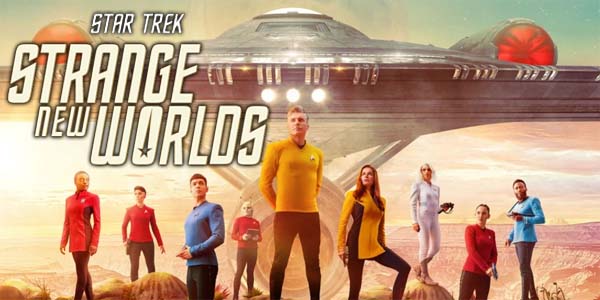
CBS and Paramount are finally learning. After years of trying to force some offensively awful Star Trek down our throats, they've finally given us something palatable. Well, I guess that's not entirely fair. I actually like Lower Decks. But Lower Decks is a self-parody animated comedy, so it's not really "serious" Star Trek, even though it's far more worthy of the franchise than the first season of Discovery or Picard.
Well, now Paramount+ also has a live-action Star Trek show worthy of the name, in the form of Strange New Worlds.
The first episode of Strange New Worlds is much more in-line with what I expect from a Star Trek show. I already talked up the virtues of an episodic format in my Lower Decks review, but focused mostly on how the self-contained nature of episodes allows some to be bad without dragging down the entire season or series with them. But the episodic nature of Lower Decks and Strange New Worlds also highlights another fundamental advantage of the episodic format: those self-contained episodes can tell more high-concept stories.
 © CBS
© CBS
Strange New Worlds is about learning from past mistakes and getting better.
The first episode of Strange New Worlds isn't the most creative or the highest of concept stories, but it's a serviceable story that is true to the spirit of classic Trek, and I'll be spoiling a lot of its plot in the coming paragraph. A first contact goes wrong, and the Enterprise has to be called into rescue the missing crew of a small scout ship. They find a pre-warp civilization that learned to reverse-engineer a warp drive from observing the events of Star Trek: Discovery. Except these people didn't use the technology to build a propulsion device; they're using it to build a weapon that they plan to use to end their own civil war. Realizing that Federation activity has already influenced the cultural development of the planet, Captain Pike decides that General Order One (the non-interference Prime Directive) does not apply. He choses to share the history of Earth's World War III (which this series assumes lies in our real-life immediate future) in an attempt to convince the warring factions to reconcile instead of risk mutual destruction.
Put simply, the first episode of Strange New Worlds differs from Discovery in that it is about preventing a war instead of starting one. It's about learning from the mistakes of past history so that they aren't repeated. And it's a stark warning of what might go wrong in today's society if political tensions don't cool off, without having to depict a future for humanity in which no social progress seems to have happened at all.
It's the type of forward-thinking story that I like about classic Trek, but which is absent from Discovery and especially from Picard (well, the first season anyway). Those shows give us a view of the future in which all the same problems that exist today still exist in 2 or 300 years. Strange New Worlds goes back to depicting a future in which humanity has learned from its past mistakes and improved itself. It's the hopeful, optimistic future that I loved from the older shows. I want to see more modern science fiction depicting futures for its audience to aspire to, instead of all the bleak, dystopian settings that dominate modern sci-fi and makes our future feel hopeless.
[More]
55d95b0e-adc5-437b-b367-2d7d9e457ad6|0|.0
Tags:Star Trek, Star Trek: Strange New Worlds, CBS, Paramount+, USS Enterprise, Christopher Pike, Spock, Nurse Chapel, Uhura, Sam Kirk, science fiction, warp drive, Starfleet, Federation, first contact, Prime Directive, Star Trek: Discovery
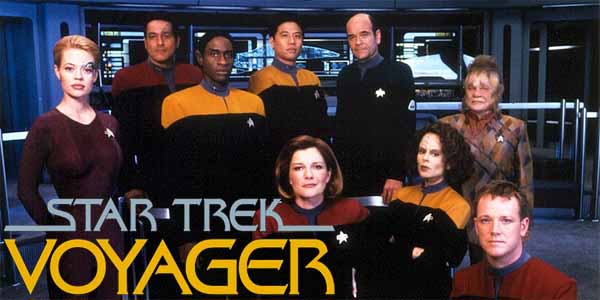
In my last post, I vented some of my frustrations with Star Trek: Voyager. Primarily, I ranted about how the series mostly failed to follow through with its central premise of being about the ship being lost and isolated on the other side of the galaxy. But I still have more complaints with Voyager. A side effect of the show not following its "lost and alone" premise to its logical conclusion, the show ended up feeling like it was trying too hard to be a Next Generation copy-cat.
Steve Shives also brought up this complaint in his Youtube video "What's My Problem With Voyager?", and I echo the criticism. Voyager had the frustrating habit of retelling stories that had already been told (usually better) in Next Generation. Star Trek shows have always repeated archetype characters, but TNG and Deep Space Nine were very good about paying homage to the earlier shows, without outright copying them.
Many characters feel like slight variations of characters from TOS and TNG.
For example, it could be argued that Data in TNG is a copy-cat of Spock. Dr. McCoy, after all, frequently referred to Spock as a "computer", and Mr. Data is [literally] a computer. But Data isn't a copy-cat of Spock. He's actually more a reflection of Spock (though, admittedly, Spock's arc in the movies and in "Unification" does paint him as being more similar to Data). Spock (in the Original Series) derided his humanity and fought very hard to subdue and quell it. Spock was like a Dr. Jekyll who thought his human half was the monstrous Mr. Hyde. Data, on the other hand, inverts this concept and is more of a Pinocchio (which Riker explicitly spells out for us in "Encounter At Farpoint").
Data wasn't a copy of Spock, he was an inverted reflection.
Also, Spock was dueling with his human half throughout the Original Series and into the movies. That's a dynamic that isn't present in Data at all. That dynamic is present, however, in Worf! Then, of course, there's the whiz kid element of Spock's character, which was transcribed onto Wesley in TNG. So TNG took inspiration from the Original Series' most popular character (Spock), but instead of copying him with minor variations, it split Spock's attributes into multiple characters.
[More]
2c5a81e1-f421-43b4-a73f-c4e9164e3c2a|0|.0
Tags:Star Trek, Star Trek: Voyager, U.S.S. Voyager, Star Trek: the Next Generation, Star Trek: Deep Space Nine, Delta Quadrant, Starfleet, Maquis, Kazon, Hirogen, Borg, Kathryn Janeway, Seven of Nine, The Doctor, Kes, Chakotay, Tuvok, Neelix, Tom Paris, B'Elanna Torres, Harry Kim, Borg Queen, Boothby, Reginald Barclay, Q, Data, Spock, Worf, Quark
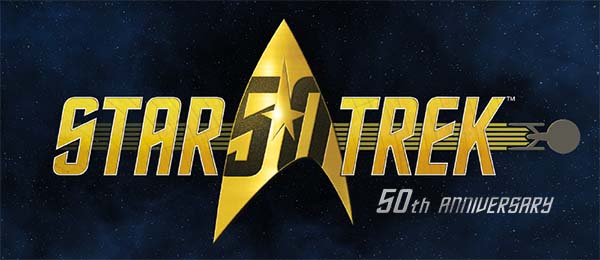
On September 8, 1966, a cultural revolution started. The first episode of a new science fiction television series named Star Trek premiered on NBC. This series broke new ground in the genre of science fiction by being one of the first series ever to present high science fiction concepts to television audiences, while also using its space adventures as allegories for contemporary social and political issues. While it presented itself as mindless space adventure in the same vein as Buck Rogers and Flash Gordon, it took a serious approach to science fiction that (at the time) was limited to literature like the novels of H.G. Wells and the stories of Isaac Asimov.
Star Trek wasn't the first serious science fiction television series. Shows like The Twilight Zone and The Outer Limits had existed for a almost a decade. But Star Trek differed from these series in that it depicted a revolutionarily positive and uplifting version of the future of humanity during the height of the paranoia of the Cold War. Humanity, according to Star Trek would overcome the threat of mutual destruction that the Cold War between the United States and the Soviet Union posed, and we would come out the other side with a spirit of cooperation and a desire to peacefully and benevolently explore the stars, exploring strange new worlds and seeking out new life and new civilizations.
Television science fiction was dominated by childish adventures like Buck Rogers
and more cynical anthology series like The Twilight Zone that drew off of Cold War paranoia.
The show was created by Gene Roddenberry, a former United States army air force pilot and Los Angeles police officer who eventually found his calling as a television writer and producer. He wrote and produced some police dramas and westerns before pitching his defining project: Star Trek. The show was picked up by Desilu Productions, a company that was run by Lucille Ball (yes, the titular actress of I Love Lucy) and her husband. The production of Star Trek was tumultuous. The show was canceled by NBC after its second season, only to be revived due to an unprecedented, fervent letter-writing campaign staged by its fans. It did not survive its third season, however, as Desilu Productions was rapidly running out of money, was forced to cut budgets, and NBC moved the show to the dreaded Friday night "death" slot. In an age before DVRs, or even VCRs, if people were out on the town on a Friday night, and they missed an episode of a show, then that episode simply went unseen.
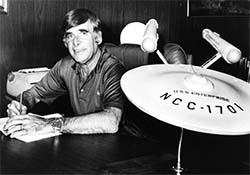
Gene Roddenberry's optimistic vision
of the future remains endearing.
The series eventually saw tremendous success after its cancellation due to its episodes being syndicated during the 1970's. It gained a cult following that grew and grew, setting up conventions that would come to draw thousands of attendees. Though not immediately apparent, Star Trek would grow to become one of (if not the) most successful science fiction properties in the world. The series is often cited by scientists, engineers, and astronauts as their inspirations for their careers, and the technology of the series has inspired many real-world technological innovations, such as wireless communication, mobile devices (in particularly mobile phones), speech-recognition software, and so on. Roddenberry became the first TV writer to receive a star on the Hollywood walk of fame, has been inducted into the Science Fiction Hall of Fame and the Academy of Television Arts & Sciences Hall of Fame, and was one of the first human beings ever to have his ashes carried into earth orbit... [More]
a36b33e8-1404-42b1-9723-a4759be0acee|2|5.0
Tags:Star Trek, Star Trek: the Next Generation, Star Trek: Deep Space Nine, Star Trek: Voyager, Star Trek: Enterprise, Star Trek: Discovery, Star Trek VI: the Undiscovered Country, Star Trek: Beyond, birthday, anniversary, science fiction, allegory, humanism, humanist, Gene Roddenberry, NBC, CBS, Fox, Paramount, Desilu Production, Lucille Ball, Cold War, Balance of Terror, The Measure of a Man, Kirk, Spock, Data, Gul Dukat, Seven of Nine, Star Trek the Experience, Las Vegas, Wallace Shawn, Grand Nagus Zek
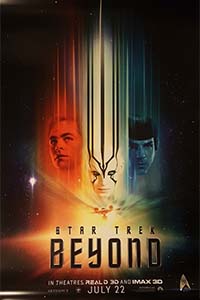
Star Trek: Beyond
I didn't really know what to expect from this movie. I was pleased that Abrams wasn't directing anymore, and that Roberto Orci and Alex Kurtzman weren't writing it. Simon Pegg writing seemed like good news. Justin Lin of Fast and Furious fame directing seemed questionable. The casting of a villain was also disappointing, as it seemed to set the stage for yet another dumb action movie. I watched the trailers, but I tried to avoid larger spoilers and speculation. I didn't want to go into the movie with a bias the way I did with Into Darknes because of all the speculation about Benedict Cumberbatch's character (would he be Khan? Would he not be Khan?).
I was really hoping for Simon Pegg to write a more pure science fiction story instead of a schlocky action movie, especially after the success and hype surrounding The Martian. "Beyond" sounds like a good title for a Star Trek movie. Maybe it would feature the crew of the Enterprise dealing with some kind of environmental challenge out in the unexplored frontiers of space? Maybe it would actually be about exploration and discovery? Maybe it would tell some timeless allegory for the human condition? I could only hope. The announcement of a villain sort of shattered that hope.
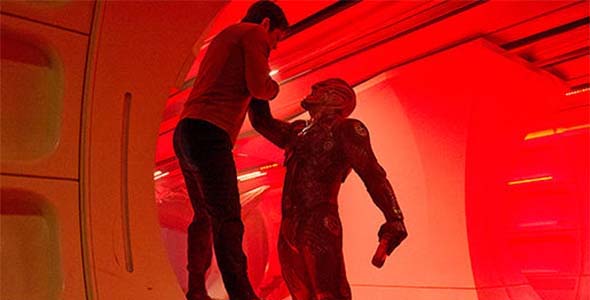
Yet another vengeful supervillain looking for a McGuffin doomsday weapon.
It doesn't help that the villain is really under-written, and that the plot revolves around the bad guy trying to get a McGuffin in order to activate a doomsday weapon. We've only sat through this plot a hundred times in sci-fi and comic book movies over the past decade. If his plan was to attack the space station anyway, then I don't know why he didn't just do it right from the start, while the Enterprise (and the McGuffin) were docked. Come to think of it, why is the Federation building massive, civilian space stations within eyesight of an ominous, unexplored nebula? Meh, I guess that's better than needing the Enterprise to warp back and forth between Earth and the Klingon homeworld in the span of a couple hours... [More]
80e21af4-18df-4984-a5d5-91fbbe299730|1|4.0
Tags:Star Trek, Star Trek: Beyond, Star Trek XIII, Justin Lin, Chris Pine, James Kirk, Karl Urban, Leonard "Bones" McCoy, Zachary Quinto, Spock, Leonard Nimoy, Idris Elba, Krall, Simon Pegg, Montgomery Scott, Enterprise, Yorktown, Franklin, starbase, McGuffin, J.J. Abrams, Alex Kurtzman, Roberto Orci, Star Trek II: the Wrath of Khan, Star Trek III: the Search for Spock, science fiction
|

| 12 | | | | | | | 60 | | 11 | | | | | | | 55 | | 10 | | | | | | | 50 | | 09 | | | | | | | 45 | | 08 | | | | | | | 40 | | 07 | | | | | | | 35 | | 06 | | | | | | | 30 | | 05 | | | | | | | 25 | | 04 | | | | | | | 20 | | 03 | | | | | | | 15 | | 02 | | | | | | | 10 | | 01 | | | | | | | 05 |
|